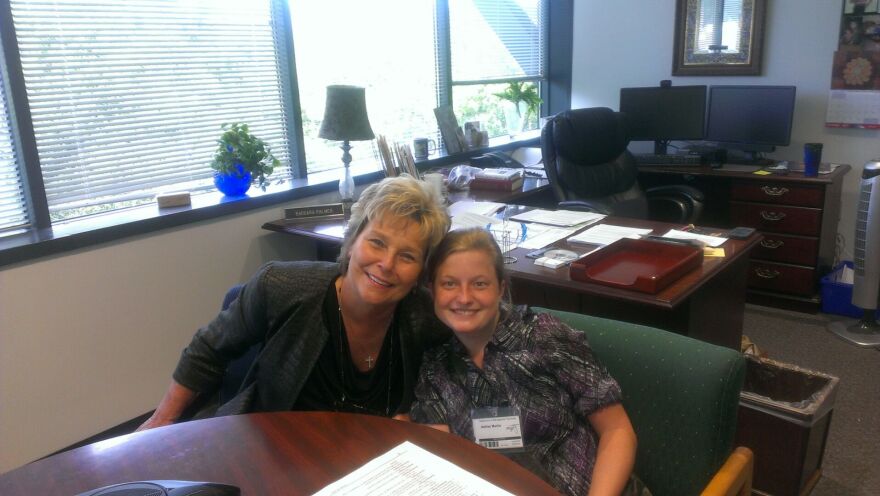Both the national and state unemployment rate is hovering around seven percent. But it’s almost nine times that--upwards of 65 percent--for people with disabilities. That type of climate has 20-year-0ld Ashley Martin frustrated.
“Honestly, they’ve put me in areas that I don’t like, and it’s getting nowhere fast,' she said.
Since she was a sophomore at Leon High School, Martin has worked at grocery stores stocking shelves. She's been at restaurants: cleaning tables, sweeping and refilling napkins and towels. But, she says the opportunities she’s gotten through her job training program aren’t what interest her. Martin, who has a learning disability, has other plans for her future:
“Being outside with nature, because really, I’m a nature woman. I don’t like to be stuck inside 24-7. It gets really boring really quickly," she said.
Martin’s dream job is one where she can work with animals, preferably horses. But opportunities like that are hard to come by. Many of the state’s big disability workforce programs, like Vocational Rehabilitation, tend to steer participants into several different types of jobs to try and determine where a person’s interest lies. Agency For Persons With Disabilities Director Barbara Palmer says agencies that support people with disabilities could do a better job listening:
“There are different levels of employability, and we have to be realistic about that. But like Ashley said, knowing what is their passion? Let me put it this way, everyone is going to be more successful in their job if they’re passionate about what they do.
Palmer says a job shelving food may work for one person, but not for another. And helping diversify and expand job opportunities is a priority for APD as it works on its partnerships with other state agencies and disability groups throughout the state. One place those groups are focusing on now is the transition from high school to college or the workforce. In Leon County, local disability groups like Ability First are pushing hard to do just that:
“We’re trying to expose students with disabilities into various careers to see what their interest is, and give them a real-world exposure to what it would be like to work there day in and day out," said Ability First's Carrie Milhous.
She says building a strong mentoring program which connects people with disabilities to business mentors in the community is a cornerstone. Milhous has lately found a number of mentors in science and technology fields:
“We have graphic designers from Awards 4 U for example. We’ve had people from the Mag Lab, and the high performance materials institute...we have forensic people, healthcare...We actually do work really hard to get careers outside those we traditionally see people with disabilities pictured in.”
But while mentorship programs are great for students, Milhous admits turning those mentorships into permanent positions remains a challenge:
“One thing I’ve learned there is to be flexible. And convincing employers that if they’re willing to be flexible and open to someone requesting an accommodation and seeing that with that accommodation things go beautifully, and in the long run, they have a solid, consistent, proud employee—it can be that simple," she said.
Ashley Martin and her mentor, Agency For Person With Disability Director Barbara Palmer, agree. And they say it’s about finding meaningful work—with employers who understand their needs:
“People with developmental disabilities—or any disability, have truly special abilities. They’re loyal, passionate, they come to work on time," Palmer said.
"And they want to put that to use, but they’re not able to," said Martin.
Palmer says, its because they, "haven't found the right thing yet," but Martin says it's because, "they keep being thrown into places that aren’t what they need.”
October is disability employment awareness month and Ashley says she hopes her job prospects will get better. Earlier in the year, APD received $500,000 from the state legislature to begin an internship pilot program in more than 10 counties to connect employers with potential employees.


